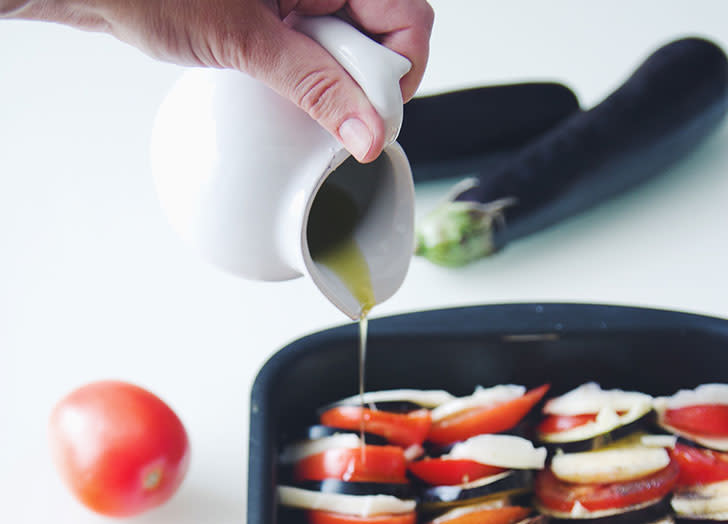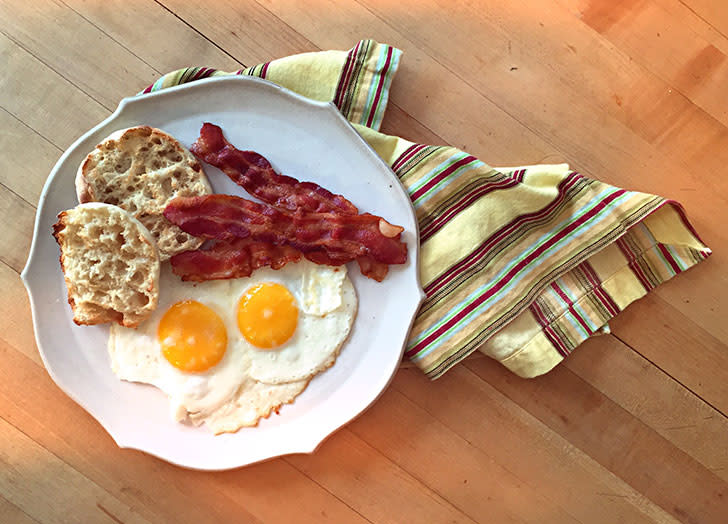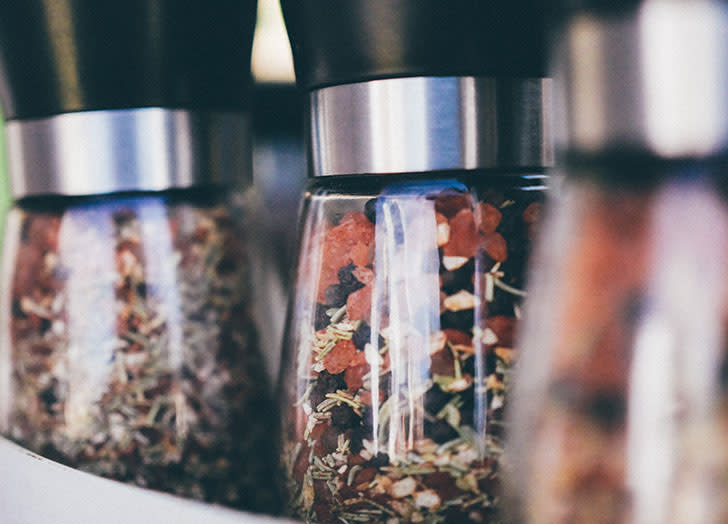6 Foods (and 1 Drink) That Are Linked to Inflammation

Hey, did you know that there are two kinds of inflammation? Acute inflammation is short-term and helps your body heal itself and fight illness (like when you get a papercut or have the flu). Then there’s the chronic, low-grade inflammation that’s linked to health conditions like rheumatoid arthritis, psoriasis and Crohn’s disease. One way to help battle the latter? Cut back on inflammation-promoting foods. Here, seven of the worst offenders.
RELATED: What Is an Anti-Inflammatory Diet, Anyway?

Soda
Sorry, but your afternoon pick-me-up isn't doing your body any favors. That’s according to a study published in The American Journal of Clinical Nutrition that found that regular consumption of sugar-sweetened soda is associated with an increased risk of rheumatoid arthritis (a chronic inflammatory disease) in women. And even though researchers didn’t find the same link with diet soda, that doesn’t mean it’s good for you either (in fact, it could put you in a bad mood). Instead, stick to good old H20 or try a green juice for a natural energy boost.
RELATED: How to Drink More Water Throughout the Day (When You Think Water Is the *Most* Boring)

Margarine
Your grandma’s favorite baking ingredient may be the secret to her perfectly moist coffee cake, but it’s also loaded with trans fats. Partially hydrogenated oils are a likely culprit of systemic inflammation in women, according to a Harvard University study. “Thankfully, the FDA has made a ruling that trans fats must be removed from the food supply by later in 2018 due to their significant association to inflammation and heart disease,” says Lori Zanini, RD, CDE and creator of For the Love of Diabetes. “In the meantime, though, trans fats still lurk in foods like packaged pies, frosting, microwave popcorn, fried foods and frozen pizzas.” Want that buttery taste without bad-for-you trans fats? Try ghee, the cooking fat that’s taking the wellness world by storm.

Vegetable Oils
Refined cooking oils (like corn, safflower, sunflower and soybean) are rich in omega-6 fats. “Unlike the anti-inflammatory omega-3 fatty acids, omega-6 polyunsaturated fats help activate the inflammatory process in the body,” Zanini tells us. “Some intake of omega-6 fats is necessary in the diet, but the problem exists when the ratio of omega-3 to omega-6 fats becomes high and off-balance.” The best ratio of omega-6 to omega-3 fats? 4:1. A typical Western diet, on the other hand, is closer to a 15:1 ratio (yikes), which puts us at risk for cardiovascular disease. To keep inflammation in check, swap vegetable oil for olive or coconut instead.

Bacon
We hear you—fried eggs with a side of crispy bacon is our weekend go-to. But if you’re following an anti-inflammatory diet, cut back on processed and fatty meats—they contain more advanced glycation end (AGE) products (compounds that fuel inflammation) than meat like poultry or wild game. Even better? Swap fatty burgers, sausages and bacon for more omega-3 rich foods like fish and beans.
RELATED: Carrot Bacon Is the Vegan Side Dish of Your Dreams

Pastries
If you’re following the anti-inflammatory diet, carbs are still on the menu (phew). But according to the Arthritis Foundation, high-glycemic index foods (like white bread, pasta and rice) promote the creation of advanced glycation end (AGE) products. What’s a bread lover to do? Skip the refined carbohydrates and opt for whole grains instead.

Sugar
“Excess sugar intake has been linked in numerous studies to chronic, low-grade inflammation by increasing levels of the inflammatory marker CRP in the blood,” says Zanini. Yikes. But that's not all—high sugar diets also contribute to an inflamed gut microbiota, increase in bad LDL cholesterol, and weight gain, which are all inflammatory conditions in the body, Zanini tells us. Double yikes. Indulge your sweet tooth with fresh berries or a few squares of dark chocolate instead.

Seasoning Mixes
Pre-made seasonings are often loaded with salt—a well-known inflammation culprit when consumed in large amounts. Stick to regular table salt (in moderation, of course) and try flavoring your food with dried herbs (some, like turmeric, may even help fight inflammation) or a squeeze of lemon juice. Cut back and you might even realize you actually like the taste of asparagus all on its own. (Weird, right?)
RELATED: 12 Easy (and Seriously Tasty) Lunch Recipes That Help Fight Inflammation

